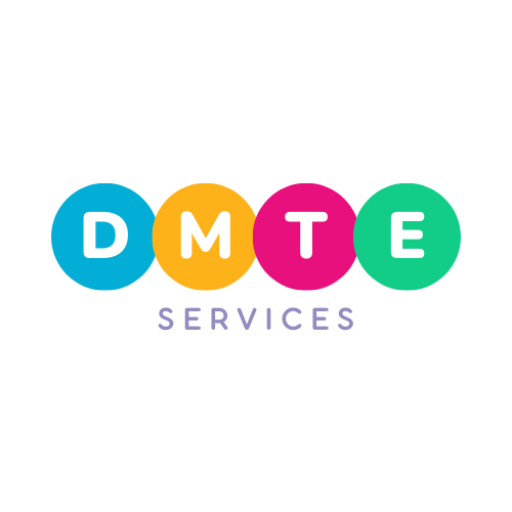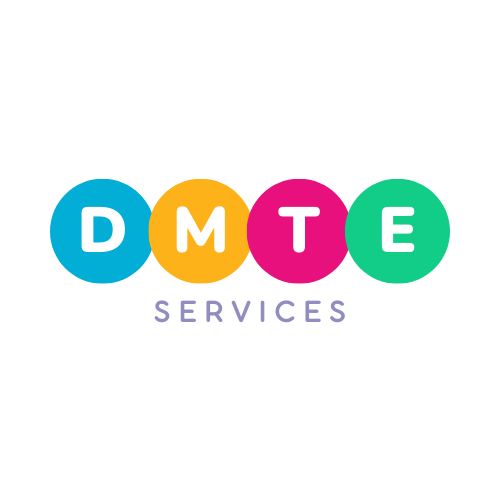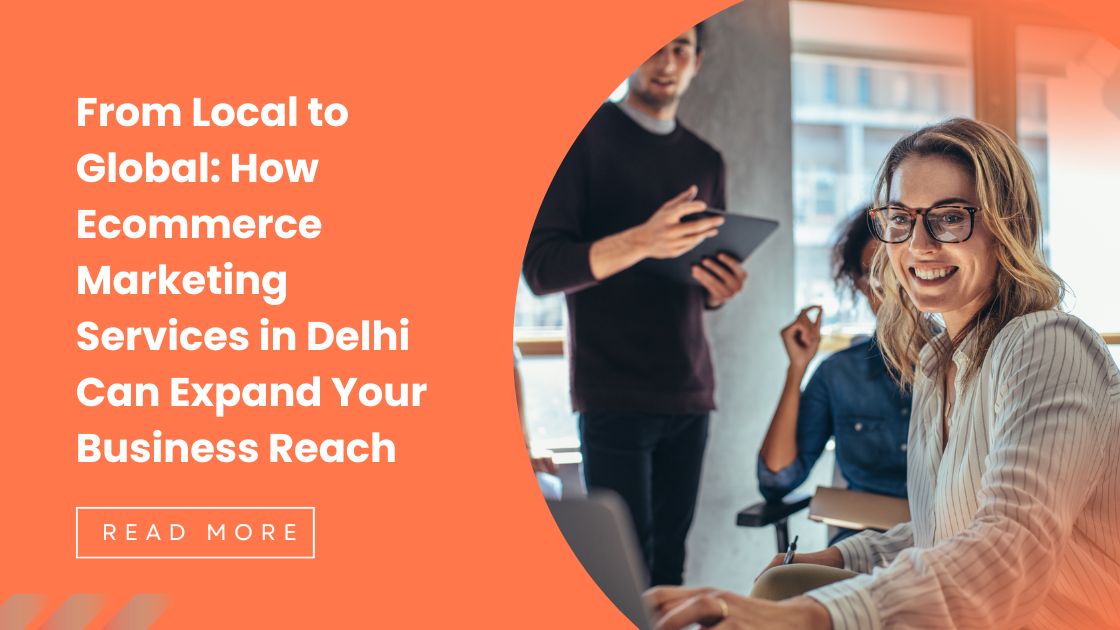From Local to Global: How Ecommerce Marketing Services in Delhi Can Expand Your Business Reach
The world of business is changing rapidly, and so are the strategies that businesses need to adopt to succeed. Gone are the days when businesses could rely on local markets and customers alone. Today, businesses need to think globally and reach out to potential customers across the world. This is where ecommerce marketing services come in handy.
Ecommerce marketing services are the process of promoting and selling products or services online, using various digital channels and platforms. Ecommerce marketing services can help businesses expand their reach, increase their visibility, attract more traffic, generate more leads, and boost their sales. Ecommerce marketing services can also help businesses create a strong brand identity, build customer loyalty, and enhance customer satisfaction.
Ecommerce marketing services are especially important for businesses in Delhi, as the city is one of the largest and fastest-growing ecommerce markets in India. According to a report by Bain & Company, the ecommerce market in India is expected to grow from $38 billion in 2020 to $200 billion by 2026, with Delhi accounting for 22% of the total online shoppers. Therefore, businesses in Delhi need to leverage ecommerce marketing services to tap into this huge opportunity and grow their business from local to global.
Boost your Business with Ecommerce Marketing Services in Delhi

Ecommerce Marketing Services
Understanding Local Market Dynamics
Before expanding your business from local to global, you need to understand the local market dynamics in Delhi. Delhi is a vibrant and diverse city, with a population of over 20 million people and a GDP of over $293 billion. It is the political, cultural, and economic hub of India, and a major center for trade, commerce, and industry.
However, Delhi also faces many challenges, such as pollution, traffic congestion, poverty, and competition. Local businesses need to overcome these challenges and find their niche in the market. They also need to adapt to the changing consumer preferences and behavior, which are influenced by factors such as income, education, culture, and technology.
One of the ways that local businesses can reach out to their customers is by using traditional marketing methods, such as print, radio, television, and outdoor advertising. These methods can help businesses create awareness, build trust, and generate leads. However, traditional marketing methods have their limitations, such as high cost, low reach, and low conversion. Therefore, local businesses need to complement their traditional marketing methods with ecommerce marketing services, which can offer them many benefits and advantages.
The Digital Transformation:
The COVID-19 pandemic has accelerated the global shift towards digitalization, as more and more consumers are ordering goods online. This has created new opportunities and challenges for businesses, especially in emerging markets like India. To survive and thrive in this competitive environment, businesses need to embrace ecommerce and leverage its benefits for business growth.
Ecommerce can help businesses reach new customers, expand into new markets, reduce operational costs, improve customer experience, and increase brand awareness. According to a report by Statista1, retail ecommerce sales worldwide are expected to exceed 5.7 trillion U.S. dollars by 2026, and India is projected to be the second-largest ecommerce market in the world by 20272. These statistics show the immense potential of ecommerce for businesses in Delhi and beyond.
Ecommerce Marketing Services in Delhi:
If you are a local business in Delhi looking to expand your reach and grow your sales, you need to partner with a reliable and professional ecommerce marketing agency in Delhi. Ecommerce marketing services in Delhi can help you create and implement customized and effective strategies that suit your business goals, budget, and target audience.
Ecommerce marketing services in Delhi can offer you a range of services, such as web design and development, SEO, social media marketing, email marketing, content marketing, PPC, and more. These services can help you optimize your online presence, drive more traffic, generate more leads, and convert more customers.
Moreover, ecommerce marketing services in Delhi have the advantage of having a deep understanding of the local market dynamics, consumer behavior, and competition. They can help you craft a unique value proposition, differentiate yourself from your competitors, and build a loyal customer base.
Ecommerce marketing services in Delhi are not just service providers, but also your partners in success. They have the expertise, experience, and resources to help you achieve your ecommerce goals and take your business from local to global.
Building a Strong Online Presence:
One of the first steps to expanding your business from local to global is to build a strong online presence. This means creating a website that is user-friendly, visually appealing, and reflects your brand identity. Your website should also be mobile responsive, meaning that it can adapt to different screen sizes and devices. This will help you reach a wider audience, as more and more consumers are using mobile phones to access the internet.
Another key aspect of building a strong online presence is to implement SEO strategies. SEO is the process of improving your website’s ranking and visibility on search engines, such as Google and Bing. SEO can assist you in increasing organic traffic, generating more leads, and increasing conversions. SEO involves various techniques, such as keyword research, content creation, link building, and technical optimization.
Social Media Marketing Strategies:
Another effective way to expand your business from local to global is to use social media marketing strategies. Social media platforms, such as Facebook, Instagram, Twitter, and LinkedIn, can help you promote your brand, products, and services to a large and diverse audience. You can also engage with your local customers through targeted content, such as posts, stories, videos, and live sessions. You can also utilize social media advertising, such as sponsored posts, stories, and ads, to increase your reach and conversions. Social media marketing can help you build a strong online reputation, generate word-of-mouth referrals, and create a loyal fan base.
Read more : How to Create a Social Media Strategies for your Business
Content Marketing for Global Appeal:
Content is the key to ecommerce marketing, as it can showcase your value, educate your customers, and persuade them to buy. To grow your business globally, you need to create content that is compelling and culturally relevant. You need to know your global customers’ needs, preferences, and pain points, and customize your content accordingly.
You can use different formats, such as blogs, videos, and infographics, to create content for global appeal. These formats can appeal to diverse audiences, and explain complex or technical information in a simple and engaging way.
You can also use storytelling to connect with your global customers emotionally, and build trust and loyalty. You can share your brand story, customer testimonials, case studies, and success stories. You can also highlight your products’ benefits and features, and how they can solve your customers’ problems. Storytelling can help you differentiate yourself from your competitors, and impress your global customers.
Search Engine Optimization (SEO) Tactics:
SEO is the process of improving your website’s ranking and visibility on search engines, such as Google and Bing. SEO is essential for ecommerce, as it can help you drive more organic traffic, generate more leads, and increase your conversions. To expand your business from local to global, you need to implement SEO tactics that can help you target both local and global customers.
One of the SEO tactics is keyword optimization. Keywords are the words and phrases that your customers type into search engines when looking for your products or services. You need to research and select the right keywords for your website, and use them in your content, titles, headings, meta tags, and URLs. You also need to optimize your keywords for local and global search, by using geo-targeting, language-specific, and long-tail keywords.
Another SEO tactic is backlink building. Backlinks are links from other websites that point to your website. Backlinks can help you enhance your website authority, credibility, and relevance. You need to build high-quality backlinks from reputable and relevant websites, such as industry blogs, news sites, directories, and social media platforms. You also need to avoid low-quality or spammy backlinks, as they can harm your website ranking and reputation.
E-commerce Platforms and Global Expansion:
To expand your business from local to global, you need to choose the right ecommerce platform for your website. Ecommerce platforms are the software that enable you to create, manage, and operate your online store. There are numerous ecommerce platforms on the market, including Shopify, WooCommerce, Magento, and BigCommerce.
However, not all ecommerce platforms are suitable for global expansion. You need to select a platform that supports international transactions, such as multiple currencies, languages, payment methods, and shipping options. This will help you cater to the diverse needs and preferences of your global customers, and avoid any issues or delays in the checkout process.
You also need to select a platform that can streamline the online shopping experience for your global customers, such as by offering fast loading speed, mobile responsiveness, user-friendly navigation, and secure encryption. This will help you reduce bounce rates, increase conversions, and enhance customer satisfaction.
Cross-Border E-commerce Strategies:
Cross-border ecommerce is the process of selling products or services to customers in other countries. Cross-border ecommerce can help you access new markets, increase your customer base, and boost your revenue. However, cross-border ecommerce also comes with some challenges, such as legal regulations, customs duties, taxes, and delivery costs.
To overcome these challenges, you need to implement secure payment gateways for your international customers. Payment gateways are the services that process online payments, such as credit cards, debit cards, and digital wallets. You need to choose payment gateways that support multiple currencies, languages, and payment methods, and that comply with the local laws and regulations of your target countries.
You also need to address the cultural nuances in your product presentation and marketing. Cultural nuances are the subtle differences in values, beliefs, preferences, and expectations that influence how customers perceive and respond to your products or services. You need to research and understand the cultural nuances of your target markets, and tailor your product descriptions, images, prices, and promotions accordingly. You also need to use clear and respectful language, and avoid any offensive or insensitive content.
Data-Driven Decision Making:
Data is the fuel of ecommerce, as it can help you measure your ecommerce success, and refine your marketing strategies. You need to use analytics tools, such as Google Analytics, to track and analyze various metrics, such as traffic, conversions, revenue, and customer behavior. These metrics can help you identify your strengths, weaknesses, opportunities, and threats, and optimize your website and marketing campaigns accordingly.
Another way to use data for ecommerce is to learn from the data and experiences of other businesses that have successfully expanded globally. For example, you can study how Flipkart, India’s leading ecommerce platform, entered the international market by partnering with Walmart, and how it leveraged its data to offer personalized and localized services to its global customers.
You can also study how Nykaa, India’s leading beauty ecommerce platform, expanded its global presence by using data to understand the preferences and trends of its international customers, and by offering them exclusive and curated products. These case studies can inspire you and guide you on how to use data-driven decision making to grow your business from local to global.
Customer Relationship Management (CRM):
CRM is the process of managing and improving your relationships with your customers. CRM can help you provide personalized customer interactions, such as by sending relevant offers, recommendations, and reminders. CRM can also help you build customer loyalty, such as by offering rewards, discounts, and freebies. CRM can also help you manage customer feedback, such as by collecting reviews, ratings, and suggestions.
CRM can help you expand your business from local to global, as it can help you understand your customers’ needs, preferences, and behavior, and tailor your products and services accordingly. CRM can also help you retain your existing customers, and attract new ones, by enhancing customer satisfaction and trust. CRM can also help you identify and resolve any issues or complaints that your customers may have, and improve your ecommerce performance and reputation.
Global Logistics and Fulfillment:
One of the biggest challenges of expanding your business from local to global is to manage the logistics and fulfillment of your orders. International shipping involves various complexities, such as customs clearance, taxes, duties, regulations, and documentation. You need to understand these complexities and comply with them to avoid any delays, penalties, or losses.
To ensure seamless deliveries to your global customers, you need to partner with reliable logistics providers, such as courier companies, freight forwarders, and fulfillment centers. These providers can help you handle the transportation, storage, packaging, and delivery of your products. They can also help you track and monitor your shipments, and provide customer support.
To minimize your shipping costs and maximize your efficiency, you need to implement some strategies, such as optimizing your packaging, choosing the best shipping methods, offering free or flat-rate shipping, and negotiating with your logistics providers. These strategies can help you reduce your overhead expenses, increase your profit margins, and improve your customer satisfaction.
Legal and Regulatory Considerations:
Expanding your business from local to global also means complying with the legal and regulatory requirements of different countries. You need to navigate the international business regulations, such as trade agreements, tariffs, import and export laws, and intellectual property rights. You also need to comply with the global data protection laws, such as the General Data Protection Regulation (GDPR) and the California Consumer Privacy Act (CCPA), which govern how you collect, store, and use your customers’ personal data.
In addition, you need to ensure legal protection for your online transactions, such as by using secure payment gateways, encryption, and digital signatures. These legal and regulatory considerations can help you avoid any legal disputes, fines, or penalties, and maintain your reputation and trust among your global customers.
Measuring Success:
To ensure that your global expansion is successful, you need to measure your progress and performance using key performance indicators (KPIs). KPIs are the metrics that reflect your ecommerce goals, such as traffic, conversions, revenue, customer retention, and customer satisfaction. You need to track and analyze these KPIs regularly, and compare them with your benchmarks and expectations.
You also need to track the return on investment (ROI) for your ecommerce marketing services. ROI is the ratio of your net profit to your total investment in your ecommerce marketing campaigns. You need to calculate and monitor your ROI to evaluate the effectiveness and efficiency of your ecommerce marketing services, and to optimize your budget and resources.
Finally, you need to celebrate your milestones and set new goals for continued growth. Milestones are the achievements that mark your progress and success, such as reaching a certain number of customers, sales, or markets. You need to acknowledge and reward your milestones, and share them with your team and customers. You also need to set new and realistic goals for your future growth, and plan your strategies and actions accordingly.
Conclusion:
In this blog, we have discussed how ecommerce marketing services agency in Delhi can help you expand your business reach from local to global. We have covered various aspects of ecommerce marketing, such as ecommerce platforms, SEO, social media, content, logistics, legal, and CRM. We have also shared some data and case studies to illustrate the benefits and challenges of global expansion.
We hope that this blog has inspired you to embrace ecommerce as a powerful tool for sustainable growth. If you are a business in Delhi looking to take your business to the next level, we invite you to explore our ecommerce marketing services. We can help you create and execute customized and effective strategies that suit your business goals and budget. Contact us today and let us help you grow your business from local to global.


